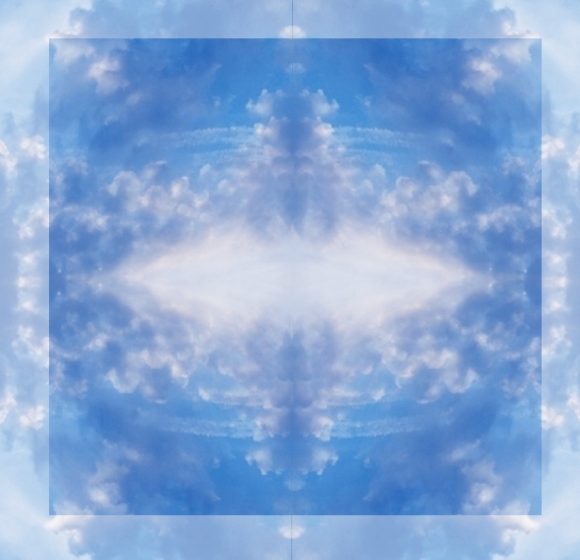Definitions of what mysticism actually is vary, but there is an ancient core understanding that is probably best expressed by saying that mysticism is a style of spirituality (or religion) in which an immediate experience of some transcendent (or divine) reality is primary.
If that is the case, it means that reflection upon such experience (generally in words: making descriptions, distinctions, definitions; laying out thoughts, drawing inferences), expression of it (e.g. in poems), communication to others (by whatever means, i.e. in speech, writing, music, dance, …), or even magical application — all are derivative. Other styles may view those activities as primary, or at least important; mysticism often dismisses them as secondary or even irrelevant. Mystic experience, as such, is often said to be “impossible to express in words”; or at least impossible to express adequately, without loss of meaning or intensity. And by virtue of that claim, mystics reject the rules and standards of logic and discursive reasoning (broadly: intelligibility by means of human communication), by which they feel themselves no longer bound when it comes to speak of their experience. Such talk thus takes the form, from the point of view of reason and intelligibility, of paradox: something of which we cannot fully make sense unless we had the mystical experience ourselves (which, by definition, we don’t). Paradox is deemed a fitting expression of mystical experience because it forces us to recognize that the powers of thinking cannot lead us to any understanding, with respect to that experience: we would either have to concede its validity and meaning without checking, or we would have to stop thinking and to start seeking that immediate experience for ourselves.
(Never mind the irony that the mystics themselves make use of logic here to reason towards their demand of being exempt from intelligibility. Their argument can be made valid, but to be also sound it hinges on the premise that “certain experiences cannot be expressed by words”, a premise that is doubtful to say the least, but as a negative is of course hard to disprove.)

If we accept that mystical experience, when expressed, will typically appear in human communication as paradox, we run into a danger. For now that we have had to stop checking its validity and meaning using the standard checks (i.e. reasoning, fact validation, …), we can no longer be sure that the mystic was speaking truthfully about their experience. What if they are a charlatan? All we have is a paradox, which in itself is (deliberately) too obscure to settle this question.
We might say that the reason-defeating nature of paradox on the one hand protects “authentic” mystics, who really had an intense and meaningful spiritual experience, from being dismissed merely because they could not intelligibly communicate it; but on the other hand, this protection cuts both ways and also works for dishonest charlatans who never had any experience at all (or at least no valid or meaningful ones), and merely pretend to have had one.
So we will naturally have to resort to searching for signs of authenticity. Since we cannot rely on consistency or coherence (paradox defeats that), we will have to check, e.g. whether the person communicating their experience is out for personal gains: do they want to sell something, be it books, seminars, techniques or tools …? Do they aspire to a position of power, e.g. leadership in a “spiritual community” where there are followers who unquestioningly do their bidding? Are they seeking attention, be it in the form of public visibility, academic credit, or simply Youtube followers on their channel? And we might combine such negative criteria, such highly visible indicators of charlatanry, with more subtle observations, ranging from the sound of their voice or their use of language, up to even (a positive indicator) a certain withdrawal and reluctance to communicate such experience at all.
But this only gets us so far. Suppose we have an expression of a mystical experience — a book, say —, of which we are certain that it is truthful and authentic. It is still paradoxical, and there is no way for a reader to make sense of it (not having had the same experience). And if we can’t do that, then what do we do with such a text?
One way of dealing with it would be to surrender to its meaning: after reading and repeating it often enough, it is possible to see the world in terms of the paradox. This can influence our behavior, our emotions and perceptions, in multiple ways, and if there is a reinforcing spiral, it is possible to some extent that we re-experience that original mystical experience, by seeing the world as conforming to the paradoxical pattern. (We cannot even exclude the possibility that some of our core scientific achievements have been produced in precisely this way. Pauli’s interpretation of Kepler’s views takes such an approach: Pauli sees archetypal structures influencing how Kepler formed his theories.) This seems a plausible description, but it only multiplies our troubles: for this would mean that there are paradoxical texts not only in a subset of books, but have sunk into the general structure of our world, and thus are quite pervasive.
A different way is to develop ways of dealing with paradox which do not sacrifice, but transform intelligibility: there are well-known attempts to design a “logic of paradox” (generally focusing on incorporating inconsistency while keeping logical norms intact). This seems to get us closer to dealing with expressions of mystical experience in a productive way: without giving up a certain array of corrective tools, we can meaningfully discuss and apply such writing, perhaps develop it further. But notice that this still requires to accept the fruitfulness of the paradoxical talk ahead of applying such a modified logic (it cannot serve to rule out charlatanry to begin with, since we’re now accepting paradox as initial input). And what’s more, surprisingly this kind of approach quickly leads to the most interesting writings drying out: it’s as if this kind of approach drives in the wrong direction, eliminating the interesting bits, and keeping only what conforms to what we already knew.
If that is true, we might perhaps take a clue from that last strategy. Perhaps the notion of making whatever flows from mystical experience intelligible is not in itself what is problematic (pace Hillman). After all, there is a rare mystic who would not extensively write about it (notwithstanding claims that it “cannot be expressed in words”). Nor should it be taken as a given that it is logic and reasoning that is incapable of doing so: it may be, in its current form, but evidently it can be modified and extended (even though paraconsistent systems in particular may have turned out a less effective direction than one might have hoped). There may be, with certain experiences, a necessary two-step process of first couching it in paradoxical descriptions and subsequently developing more elaborate logical means to understand it better (correcting the inevitable mistakes, clarifying ambiguities, relating it to adjacent notions). We don’t even always have to assume that these must be constructed from scratch: for the development of thought progresses continuously, and independently discovered logical means might help when retrospectively applied.



